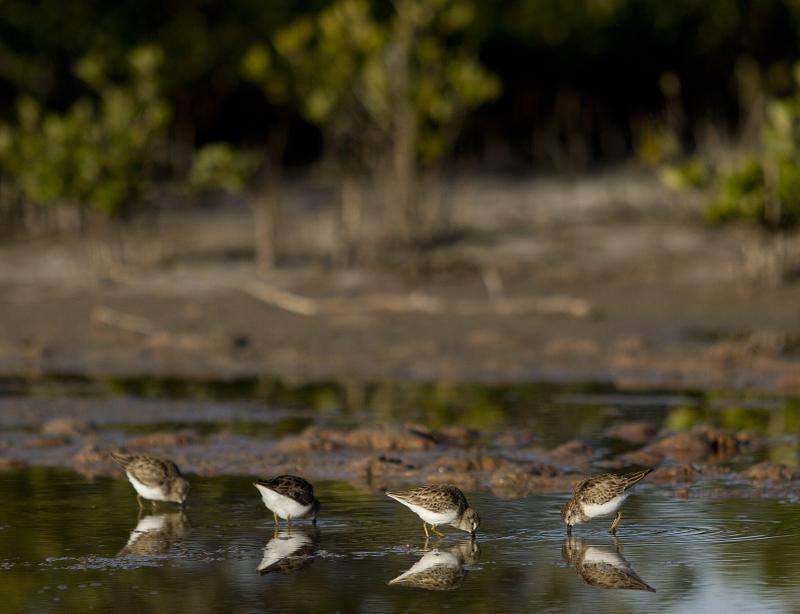
Shorebirds feed in the shallows of Estero Bay State Preserve. In the background are black mangroves, which are part of a salt marsh, which absorbs large amounts of carbon dioxide. (Photo: File photo by Andrew West)
CLICK HERE - RESEARCH - PLOS One - Living Shorelines: Coastal Resilience with a Blue Carbon Benefit
news-press.com - by Chad Gillis - December 24, 2015
Natural, living shorelines in areas like the Gulf of Mexico absorb a lot of carbon dioxide and will help blunt the effects of climate change.
And coastal wetlands store several times the amount that can be absorbed by mature tropical forests, the research shows.
The National Oceanic and Atmospheric Administration studied wetlands in North Carolina and reports that plants, sand and rocks are better for the environment than man-made features like concrete sea walls and high-rise condominiums.
The report, published earlier this month in the journal PLOS One, shows that natural features in coastal areas help keep atmospheric carbon dioxide levels lower.
Recent Comments